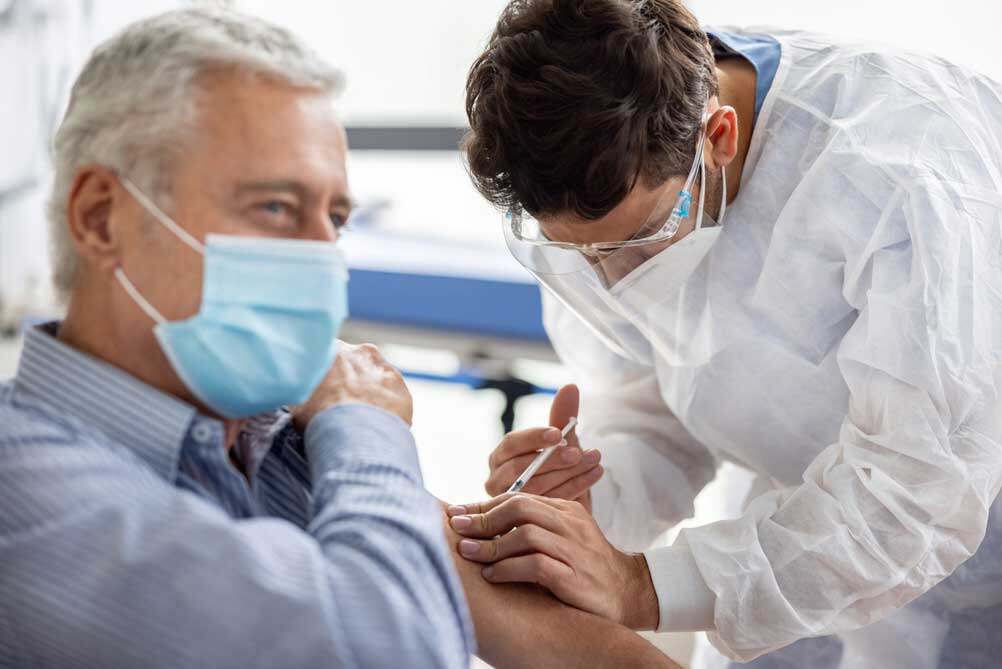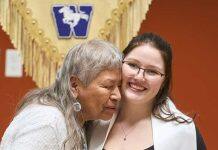New research has identified which people with compromised immune systems are less likely to have COVID-19 antibodies – making them more vulnerable to a severe infection.


Around one in five people with solid organ transplant, rare autoimmune disease or blood cancer affecting lymphocytes had no COVID-19 antibodies after three or more vaccinations.
The MELODY study was carried out by a team of doctors and researchers from several institutions including Imperial College London, The Universities of Southampton, Nottingham, and Cambridge, Nottingham University Hospitals NHS Trust, NHS Blood and Transplant, the National Disease Registration Service at NHS England, and IPSOS MORI.
People were more likely to have antibodies if they were younger, had more vaccine doses (e.g. five vs three) or had previously had COVID-19. Some medications that weaken the immune system reduced the likelihood of having antibodies.
The findings published in The Lancet Rheumatology will help to better plan care and treatment for people living with these conditions. People who are less likely to have COVID-19 antibodies could be offered antibody testing and targeted interventions, such as further vaccine doses or preventative medicine. The absence of antibodies could also influence which immunotherapy medications are given to those with different underlying conditions.
“Clinically vulnerable patients who are at increased risk are encouraged to attend if they are invited for a booster vaccine, to get the best protection against COVID-19.”
-Dr Michelle Willicombe, from the Department of Immunology & Inflammation at Imperial College London
Dr Michelle Willicombe, from the Department of Immunology & Inflammation at Imperial College London, who led the research, said: “We know from previous research that people who have a weakened immune system were more likely to catch COVID-19. They were also more likely to need to go into hospital for treatment or die from COVID-19.
“Vaccines trigger the immune system to make antibodies. But if your immune system is weak, you may not produce enough antibodies needed to fight infection and prevent serious illness. Clinically vulnerable patients who are at increased risk are encouraged to attend if they are invited for a booster vaccine, to get the best protection against COVID-19.”
People with suppressed immune systems could choose to enrol in the study if they had received at least three COVID-19 vaccine doses. More than 23,000 people took part by doing a home finger-prick antibody test and reporting the results using an online portal.
Participants also provided personal details (such as their age, gender and ethnicity), information about their condition, and their COVID-19 history, including number of vaccinations.
Antibodies were found in 77 per cent of people who had a solid organ transplant, 79 per cent of those with a blood cancer, and 86 per cent with rare autoimmune disease.
“This research shows that the majority of immunosuppressed people produce antibodies after having COVID-19 vaccines,” says Dr Fiona Pearce from the University of Nottingham. “Across all groups, we found that people who had had more doses of vaccine were more likely to have antibodies. In the future, this could help to develop bespoke booster vaccination schedules for more vulnerable groups.”
Dr Peter Lanyon, Consultant Rheumatologist, Nottingham University Hospitals NHS Trust and Rare Diseases Clinical Lead, National Disease Registration Service, NHS England said: “This study demonstrates the utility of national rare disease registration to identify and invite whole population-based cohorts of people to participate in research that answers important clinical questions and can inform clinical practice and health policy.”
Antibody prevalence after three or more COVID-19 vaccine doses in 23,000 immunosuppressed individuals: a cross-sectional study from MELODY is available online.
The research was funded by Funding for the Medical Research Council and health charities including Kidney Research UK, Vasculitis UK, Blood Cancer UK, and Cystic Fibrosis Trust.








































